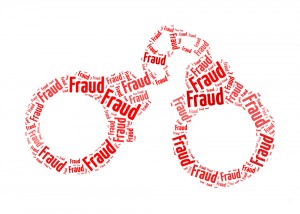 The attorneys with the offices of Gana Weinstein LLP are investigating customer complaints and The Securities and Exchange Commission (SEC) recently filed complaint alleging that Oregon-based investment firm Aequitas Management, LLC (Aequitas Management) and its subsidiaries operated a Ponzi-like scheme that defrauded its 1,500 customers of approximately $350 million.
The attorneys with the offices of Gana Weinstein LLP are investigating customer complaints and The Securities and Exchange Commission (SEC) recently filed complaint alleging that Oregon-based investment firm Aequitas Management, LLC (Aequitas Management) and its subsidiaries operated a Ponzi-like scheme that defrauded its 1,500 customers of approximately $350 million.
Upon information and belief, the following firms sold Aequitas notes to clients: CONCERT Wealth Management, Summit Advisor Solutions, LLC, Private Advisory Group, Elite Wealth Management, Integrity Bank & Trust, CliftonLarsonAllen Wealth Advisors (CLA Wealth Advisors), and Innovator Management LLC.
The SEC also alleged that the top three executives of Aequitas Management – CEO Robert Jesenik (Jesenik), executive vice president Brian Oliver (Oliver) and chief operating officer N. Scott Gillis (Gillis) were aware as early as 2014 that constraints in the company’s cash flow would make it difficult to meet existing obligations but continued to raise money anyway based on false premises in order to prop up the company.
According to the SEC, an investor would be issued a note promising that their principal plus interest ranging anywhere from 5 to 15 percent annually would be paid. Jesenik and Oliver raised funds primarily by issuing promissory notes through Aequitas Commercial Finance, LLC (ACF), an entity wholly owned by Aequitas Holdings, LLC (Aequitas Holdings). Other promissory notes were issued by a series of Aequitas-affiliated investment funds (the Aequitas Funds – See list below). The manager of ACF is Aequitas Capital Management, Inc. (ACM) and the manager of the Aequitas Funds is Aequitas Investment Management, LLC (AIM).
According to the complaint, when the executives learned of large discrepancies between their assets and obligations they declined to cut expenses and raised hundreds of millions of dollars from new investors. The SEC found that since 2014, Aequitas defrauded investors into thinking that they were investing in a portfolio of trade receivables in healthcare, education, transportation, or consumer credit while in reality the vast majority of investor funds to repay prior investors and to pay the operating expenses of the Aequitas enterprise. In addition, the company used funds to support the lavish salaries and lifestyles of the owners.
At the heart of the company’s troubles is its outsized investment in Corinthian College, a Canadian for-profit college that was effectively shuttered after the province of Ontario suspended its operating license in early 2015. Corinthian College then declared Chapter 11 bankruptcy in May 2015, crushing Aequitas finances since 75 percent of its trade-receivables portfolio was tied to the college.
The SEC found that instead of tightening expenses after the crippling Corinthian College blow, the company sought out new investors who’s funds were used to continue paying older investors. In order to attract financing, Aequitas issued more promissory notes with unrealistically high interest returns ranging from 10 to 15 percent. In January, the Aequitas ceased making payments to its investors, laid off 80 of its 120 employees, and hired an outside company to wind down the business.
According to The Register-Guard, Chris Bean of Private Advisory Group in Redmond, Washington has 330 clients invested in Aequitas, more than any other financial adviser in the country. Advisors have an obligation to conduct due diligence and make suitable recommendations to their clients. The investment fraud attorneys at Gana Weinstein LLP represent investors who have suffered securities losses due to the mishandling of their accounts. Our consultations are free of charge and the firm is only compensated if you recover.
The Aequitas Funds include:
Aequitas WRFF I
Aequitas Private Client Fund
Aequitas Income Protection Fund
Aequitas ETC Founders Fund
Aequitas Income Opportunity Fund II
Aequitas Enhanced Income Fund
Aequitas Commodities Fund
Aequitas Capital Opportunities Fund
Aequitas Secured Subordinated Promissory Notes
 Securities Lawyers Blog
Securities Lawyers Blog


